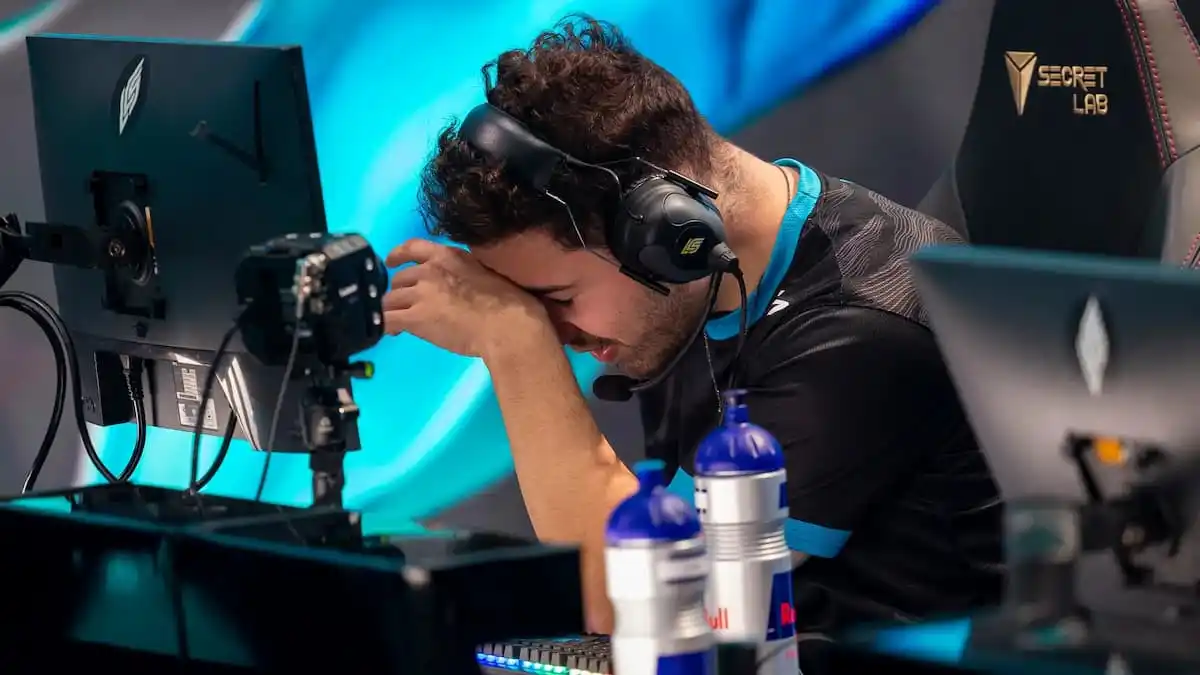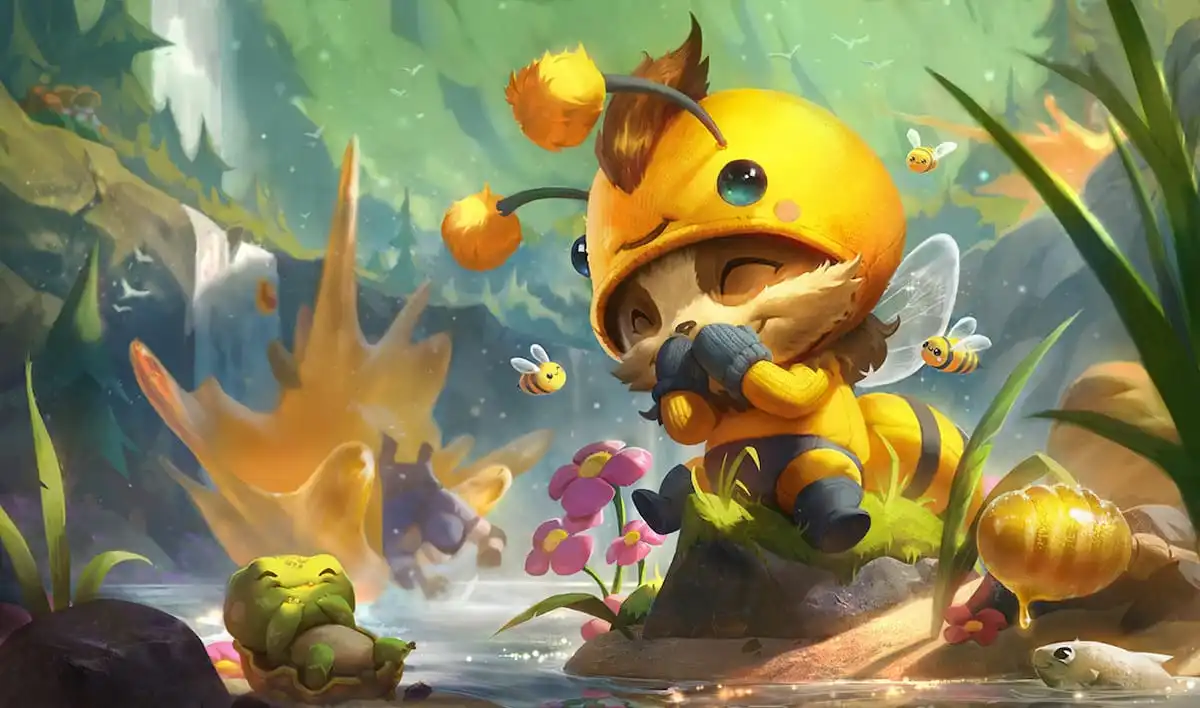Chris Badawi (Badawi) tampered with two players currently signed by Team Liquid – Yuri “Keith” Jew (Keith) in February 2015, and Diego “Quas” Ruiz (Quas) on April 22, 2015. That is the claim. However, tampering should not be the issue surrounding Riot Games’ “Competitive Ruling: Chris Badawi” issued on June 24, 2015. The real issue is the application and interpretation of The League of Legends Championship Series (LCS) Official Rules (Rules) and the need for reform.
BACKGROUND
To fully discuss Riot’s application and interpretation of the LCS Rules, a brief overview is needed.
- In February 2015, Badawi approached Keith, while he was under contract with Team Liquid, and attempted to recruit him to play for Misfits (now re-branded the Renegades);
- At the time, Steve Arhancet, the owner of Team Liquid, informed Badawi of the regulations against tampering and poaching;
- Also in February, Badawi contacted Riot on his own volition regarding contract enforcement regulations.
- On April 22, 2015, Badawi approached Quas.
- On or about May 16, 2015, Mr. Arhancet filed a tampering complaint against Badawi to Riot. Presumably, Riot began its investigation into the matter at or around this time.
- Up until this time, there was no LCS Rule governing the tampering or poaching by non-LCS or non-NACS teams. At the time, tampering/poaching rules only applied to interactions between LCS teams, as defined in Section 10.2.13 of the LCS Rules — not to prospective LCS owners. Thereafter, on May 21, 2015, the LCS Rules were revised, binding prospective LCS team owners – and requiring them to abide by the LCS Rules.
- Notably, Badawi was not subject to any LCS or NACS Rules before the May 21, revision to the LCS Rules. Misfits (now Renegades) was not qualified for the NACS, and Badawi’s ownership stake in Team Dragon Knights began after their qualification into the LCS. All actions taken by Badawi were undertaken prior to any LCS Rule governing the behavior and conduct of prospective LCS owners.
- On June 24, 2015, Riot completed its investigation into Badawi and issued its Competitive Ruling.
RIOT HAS FAILED TO PROVIDE AN ACCURATE ACCOUNT OF THE SITUATION
Riot’s failure to provide an accurate account of all the facts surrounding the Badawi Competitive Ruling has left doubts and questions as to what really happened. Since the Competitive Ruling on June 24, 2015, and Christopher “MonteCristo” Mykles’ statement on behalf of Renegades, Badawi has spoken out and released additional evidence that provides much needed context surrounding the tampering incidents.
As to the tampering incident in February, Badawi has released a messaged to Keith that has provided much needed clarity and mitigating circumstances surrounding the tampering. Specifically, Badawi states that after initially tampering with Keith and being informed by Mr. Arhancet of the LCS tampering rules, the two parties “reached an agreement with Keith, including a buyout price.” This alone should have reduced any Riot’s punishment to a warning. In addition, Badawi’s statement provided context and mitigating facts to Riot’s account of the tampering incident. Disturbingly, the evidence appears to show that Riot cherry picked part of a single sentence, twisting it and taking it out of context. Riot stated in its Competitive Ruling that “Badawi then reached out to [Keith] and asked him to pretend their conversation had never happened if questioned by Team Liquid management.” However, the full message reads:
[h]ey dude – I just talked to Steve and we are working it out – although I just learned I screwed up and he didn’t want me to approach you first – could you just pretend like we never had a conversation and let Steve facilitate the deal however he sees fit? I just don’t want Steve to think I was trying to poach you or pull something behind his back… I’m not at all – I just didn’t know the proper etiquette. Sorry to ask it of you and I can’t wait to start working with you.
The full message reveals that Riot misleadingly used a small portion of Badawi’s message to Keith. Further, Riot added additional language entirely absent from Badawi’s message to Keith. Riot specifically added that “if questioned by Team Liquid management” language to their Competitive Ruling. This is a gross abuse of Riot’s total control over the LCS. By removing Badawi’s statement from its context and reading in additional language, Riot loses credibility as to the competency of its decision-making.
Additionally, the facts surrounding Badawi’s communications with Riot are clouded with lingering questions. Badawi’s interaction with Riot resulted in two very different stories. Renegades’ account is that Riot told Badawi that amateur teams were not held to any ruleset. Riot, in its Competitive Ruling, stated: “[a]fter discussing how tampering and poaching rules operate in [NACS] and LCS and having numerous questions answered, [Badawi] was directly told tampering was impermissible and was given the following condition of entry into the league in writing: ‘[a]t some point owners, players, coaches, are all behavior checked and if someone has a history of attempting to solicit players who are under contract, they may not pass their behavior check.'” These two opposing views are at odds with one another.
Badawi also provided additional context and evidence related to his communications with Riot in February. While he only released excerpts from the email chain with Riot, those excerpts call into question Riot’s decision-making. Riot omitted from their Competitive Ruling that they did indeed state:
[A]s a purely amateur team (i.e. a team only on the Ranked 5s ladder), the team is not held to any ruleset.
That alone should eliminate any doubt as to whether Riot thought the LCS Rules apply to a non-LCS teams regarding tampering and poaching. Calling into question Riot’s ability to properly interpret its own rules, Riot later stated that:
An amateur team still has to have their owner approved if they were to reach LCS and we will not approve an owner that has a history of tampering with player contracts.
How can Riot, in a single breadth, state that non-LCS teams are not held to any ruleset and then claim that they are? If Riot cannot consistently interpret its own rules, either the rules are ambiguous and in need of reform, or Riot must find someone who can properly interpret the rules. Riot’s inability to provide Badawi with a consistent statement regarding the applicability of the LCS Rules must be a mitigating factor in his punishment.
The language that Riot quoted in its Competitive Ruling cannot be found in Badawi’s excerpts of his communications with Riot. The full context, including that language quoted by Riot, must be released. Riot has the burden of proof. Without the release of all of Badawi’s communications with Riot, it can reasonably be presumed that such a statement may not exist.
Continuing the pattern of ambiguity and lack of solid evidence surrounding these events, the facts are unclear as to the true nature of Badawi’s communication with Quas on April 22. Riot, in its Competitive Ruling, states Badawi suggested Quas consider leaving Team Liquid, and explicitly stated Misfits (now Renegades) would offer a higher salary. Furthermore, Riot claims that Badawi admitted he offered Quas a spot on Misfits. Riot also determined that Badawi’s continued insistence that he did not offer Quas a salary was false. How has Riot made these determinations? Where is the evidence to support these claims? Badawi claims that there is no evidence of this conversation because it was not recorded. How then can Riot make definitive claims regarding Badawi’s communication with Quas? What parties where questioned – Badawi, Quas, Arhancet?
Badawi continues to insist that while they discussed Quas’ contract and possible options for his future, no contract offer was made. Riot cannot support the claims in their Competitive Ruling without providing additional context into how their determination was made. Riot should release the full and complete record of its conversation with Badawi from February.
RIOT’S APPLICATION AND INTERPRETATION OF THE LCS RULES
Riot crafts, applies, and interprets the LCS Rules. But, if Riot wants to avoid negative public backlash, it must apply and interpret the rules even handedly and without ambiguity. At the moment, some facts are unclear and at odds the accounts provided by Riot and Badawi (through Renegades). In future instances, Riot must avoid the “he said, she said” and release the written exchanges detailing rule violations. Riot, as the decision maker, should shoulder the responsibility of supporting its decision with the factual record – and without it, Riot’s authority will be undermined, and its decisions questioned, leaving doubts and questions as to what really happened.
As stated above, whether or not Badawi tampered with contracted players (perhaps he did) should not be the focus of the discussion. Riot’s proper application and interpretation of the LCS Rules is the critical issue. Badawi may have tampered with contracted LCS players, but, there was no applicable tampering/poaching rule governing non-LCS jowners/teams. Badawi’s tampering took place in February and April — approximately one month before Riot changed Section 3.1 of the LCS Rules to include prospective LCS owners. The timing of Riot’s rule change (after Mr. Arhancet’s complaint and before Riot’s competitive ruling) leaves little doubt that this was an emergency rule change in light of an unfolding situation. Riot, realizing the LCS Rules did not cover this situation, subsequently revised the LCS Rules and retroactively applied them to Badawi.
Riot’s retroactive application of a rule to previous conduct is illogical and it has no place in sports. Riot is unfairly penalizing Badawi for breaking a rule that did not exist when engaged in the now prohibited conduct. Nick Allen of Riot attempted to clarify the situation, stating:
[w]e’ve always reserved the right to deny requests to join the league from owners who want to get in – entry into the LCS isn’t solely a matter of qualifying through a tournament, it also involves meeting the professionalism bar of the LCS and a good faith effort to act as a fair partner to the league, pro players, and fellow owners. The previous language to the rule that was quoted to Chris Badawi in February is consistent with the new language; the new rule just expands on the point so there’s no ambiguity about the intent. It was always intended to allow for exactly what happened with this ruling. The former language of rule 3.1 reads: The League shall have the right to make final and binding determinations regarding Team ownership, issues relating to the multiple team restriction and other relationships that may otherwise have an adverse impact on the competitive integrity of the LCS. Team Owner agrees that it will not contest any final determination of the League in connection therewith.
Now, read the revised rule — Section 3.1:
The League shall have the right to make final and binding determinations regarding Team ownership, issues relating to the multiple team restriction and other relationships that may otherwise have an adverse impact on the competitive integrity of the LCS. Any person that petitions for ownership into the LCS can be denied admission if they are found to have not acted with the professionalism sought by the LCS. Someone seeking admission into the LCS must meet the highest standards of character and integrity. Candidates who have violated this rule set or attempted to act against the spirit of these rules, even if not formally contracted to the rule set, can be denied admission into the LCS. Team Owner agrees that it will not contest any final determination of the League in connection therewith. (Italics added.)
While arguably the previous rule reserved the right to deny requests to join the league, the prior rule and revised rule are vastly different. The prior rule focuses on the multiple team restriction and other relationships that may adversely affect the LCS — none of which, comes close to Riot’s new rule requiring non-LCS teams and owners to abide by the LCS Rules. The revised rule might as well have been an entirely new section of the LCS Rules. In addition, no fair argument can be made that the revised rule was encompassed within the old rule. If Riot felt that the old rule actually required non-LCS teams and owners to abide by LCS Rules, then there would be no reason for the revised rule. Nick Allen stated the revision just expands upon the point, so there is no ambiguity. Not so.
Riot’s revised rule adds completely new requirements. Now, for the first time, non-LCS teams and owners are subject to LCS Rules, and their failure to follow the rules can result in the denial of admission into the LCS. This is undisputedly a new rule – not a clarification, not an “expansion” to remove ambiguity, and not part of the so-called original unexpressed “intent.” Also noteworthy is that Nick Allen conceded there was “ambiguity” with regard to the old rule.
Riot must release the full, unedited chat logs or written statement from the February discussion with Badawi. Without such information, the only appropriate conclusion is that Riot reacted to Mr. Arhancet’s complaint about Badawi, made a new rule, and retroactively applied the new rule to Badawi’s conduct. Note also there is no attempt here to try and characterize Badawi’s actions as innocent or acceptable — in fact, he appears to have tampered with players signed by Team Liquid. But, that is not the point. The point is that Badawi should not be punished — after the fact with a new rule.
RIOT MUST STRIVE FOR CONSISTENCY IN COMPETITIVE RULINGS
With the rapid growth in the LCS and NACS, tampering and poaching increasingly has become a serious issue that Riot has addressed in the past. Examples of tampering and/or poaching by those affected by the applicable LCS Rules include:
- Bjergsen – fined $2,000.00 in January 2014 for improperly approaching players;
- Counter Logic Gaming – fined $10,000.00 in December 2014, for tampering with and poaching William “Scarra” Li from Dignitas;
- Doublelift & Counter Logic Gaming – fined $2,500.00 and $2,000.00 respectively, for tampering with and poaching Darshan “ZionSpartan” Upadhyaya; and
- Martin “Deficio” Lynge – a Rioter and former professional player suspended for four weeks for tampering and barred from accepting a position as an “approved Team Member” through the conclusion of 2016.
All of the instances outlined above have one major factor in common: every single person or team was subject to the LCS Rules. Multiple players, an LCS team, and even a Rioter were found to have violated the LCS Rules with regard to tampering and poaching. Those instances of tampering and poaching are supported by the evidence and the LCS Rules.
While Badawi tampered with two players, the LCS Rules did not apply to non-LCS teams or prospective owners at the time of the infractions. No case can be made to support Riot’s decision that the rules in fact applied to Badawi. His team was not an NACS team, and Badawi did not have an ownership stake in an LCS team at the time he tampered with two of Team Liquids’ players. Riot revised the rules after the fact to support a retroactive competitive ruling.
How can Riot reasonably argue that the punishment levied against Badawi is fair? Further, how can Riot hold someone that was not subject to the LCS Rules to a higher standard than Counter Logic Gaming, Bjergsen, Doublelift and even a Rioter? The previous punishments set the bar low. Why does Riot think it is appropriate to make an example out of someone for whom LCS Rules did not apply? Furthermore, there are mitigating circumstances, detailed above, that should have factored into reducing the punishment levied against Badawi.
Assuming for argument’s sake that Riot validly applied the LCS Rules to Badawi, the mandatory divestment of his minor-ownership stake and barring from the LCS until 2017 goes beyond all previous punishments for tampering and poaching. Badawi’s infraction (tampering) is not even as serious as actually poaching a player from another team. Counter Logic Gaming’s actions resulted in actual examples of poaching, a result far worse than the mere act of tampering, yet its punishment is a slap on the wrist compared to Badawi’s punishment. Riot must strive for consistency in its rulings and punishment.
RIOT MUST IMPLEMENT AN APPEALS PROCESS
Riot’s competitive ruling against Badawi also sheds light on the need for reform in the LCS Rules. Specifically, the LCS Rules must allow for an appeals process related to Riot’s competitive rulings. Currently, Section 11.1 provides that all decisions regarding the LCS Rules are final and not in any manner able to be appealed. The LCS is unlike all major sports in that Riot does not allow for any type of appeals process. For the growth of LCS and eSports, Riot should implement a process that allows for the appeal of Riot’s competitive rulings. Additionally, Riot should revise Section 11.2 Rule Changes – because as it stands, Riot can make a rule change at any time. Rule changes should be limited to the offseason only.
About the Author
My name is Matt Dillon. I’m an associate at Gatzke Dillon & Ballance, LLP and I’ve been practicing law for 4 years, with 2 years of experience in eSports. My firm provides full service legal counsel to owners, teams, leagues, individual players, advertising companies, sponsors, and others involved in eSports-related transactions and disputes. To learn more about GDB eSports Law, please visit GDB eSports Law.




